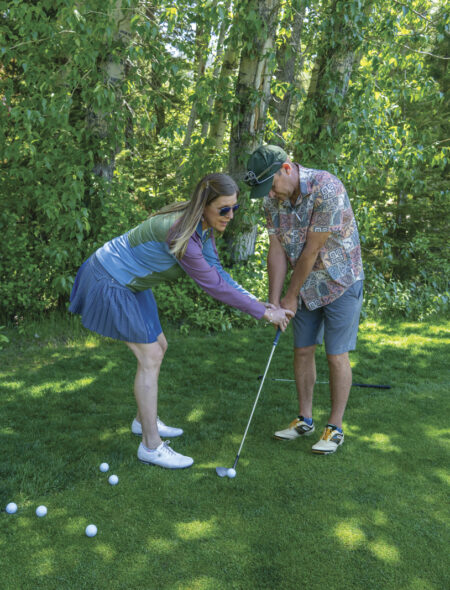

Golf Tip: Why You Shouldn’t Swing Wedges at Full Power
If you’re new to golf, you’ve probably heard that wedges are “scoring clubs.” That means they’re meant to help you hit short shots close to the hole, especially from inside 100 yards. But one of the most common mistakes beginners make is swinging their wedges as hard as they can. It might feel like more power = better shot, but that’s not true when it comes to wedges. Here’s why you shouldn’t swing your wedges at full power, and what to do instead.
1. You’ll Have Better Control
Wedges are all about control, not distance. If you swing really hard, it’s easier to hit the ball too far or not far enough. A smooth, easy swing gives you more control over where the ball goes. Think of it like tossing a ball to a friend—do you throw it as hard as you can? No! You toss it gently so it lands where you want.
2. You’ll Hit the Ball Cleaner
When you swing at full speed, it’s harder to make clean contact. You might hit behind the ball (called a “chunk”) or hit the top of the ball (called a “thin” shot). By swinging softer, you stay more balanced and make better contact, leading to better shots more often.
3. The Ball Will Stop Faster on the Green
Wedges are designed to make the ball spin. This helps it stop quickly after it lands. But if you swing too hard, the ball might fly too high and roll too far. A controlled swing puts more spin on the ball and helps it stop closer to the hole, giving you an easier putt.
4. It’s Easier to Control the Height
A big, fast swing often sends the ball too high into the air. This makes the ball harder to control, especially if it’s windy. A smooth, shorter swing keeps the ball lower and on target. You’ll feel more in control, and your shots will be more consistent.
5. You’ll Have More Options
Golf is all about choices. If you’re always swinging your wedge at 100%, you don’t have much room to adjust. But if you practice half-swings and three-quarter swings, you can hit a lot of different distances with the same club. This makes you a smarter, more flexible golfer.
What Should You Do Instead?
- Take shorter swings—about 50% to 75% of your full effort.
- Practice hitting your wedge different distances with these softer swings.
- Focus on accuracy and feel, not just power.
- Use your body, not just your arms, to swing smoothly.
Golf isn’t about hitting every shot hard—it’s about hitting the right shot. With your wedges, less really is more. Smooth, easy swings will help you hit the ball more solidly, control your distance, and give yourself better chances to score.
So next time you grab your wedge, relax, take a shorter swing, and trust it. You don’t need to swing hard—you just need to swing smart.
This tip was provided by Robyn Bradford, CPP PGA and Golf Instructor at the Incline Village Golf Courses. Visit the Golfing Tips page at GolfIncline.com for more tip videos and articles and the Golf Academy page for lessons and clinics.



